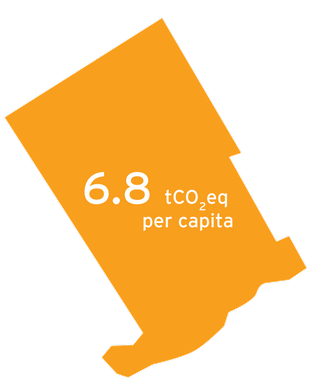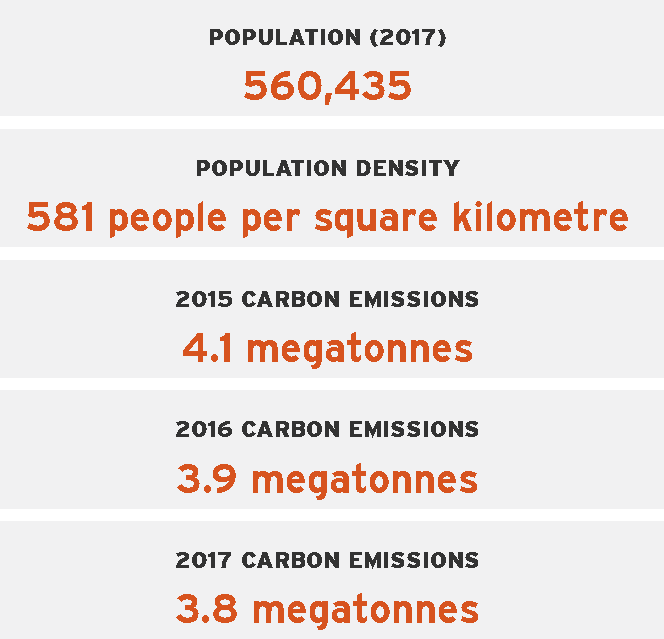January 21st, 2020
BURLINGTON, ON
Weren’t we supposed to be the good guys – the number one (#1) mid-sized city in the country. The greatest place to live play and work.
Then we learn that Halton has the highest per capita emissions in the GTHA when industry sources are excluded. This is despite the fact that Halton’s per capita transportation emissions are at the GTHA median, and the region’s percentage of long car-based commutes is not as high as in Durham or York.
Natural gas — captured in the buildings sector data — is responsible for a large portion of Halton’s emissions. This natural gas is primarily used for water and space heating, so the warmer winter (with less heating demand) in 2017 is partially responsible for the large overall decrease in emissions that Halton is showing from 2015 to 2017
 Let’s let Chair Gary Carr explain that one!
Let’s let Chair Gary Carr explain that one!
Burlington city council did the right thing by declaring a Climate Emergency – other municipalities followed but other than assuring that there is an “environmental lens” made a part of every Staff report Burlington can’t claim they have done very much.
Halton’s Pathway to Carbon Neutrality
All the municipalities in Halton declared a climate emergency in 2019, suggesting that the region plans to accelerate climate action.
Halton’s emissions from natural gas are high compared to most other parts of the GTHA. Although this is due in part to industrial consumption of natural gas, undertaking energy efficiency retrofits will have to be a critical part of Halton’s plan to reach net-zero emissions.
Further, green standards for new buildings should be developed to ensure that the region can continue to grow while still reducing emissions.
SCALABLE SOLUTION FROM HALTON, FOR THE GTHA
Oakville-based company BerQ RNG produces renewable natural gas from Ontario’s food waste. In 2019, TAF invested $1.15 million in a 15-year project with BerQ to install and operate new refining equipment. Not only will this investment reduce carbon emissions by displacing fossil fuels, it will demonstrate the business case for renewable natural gas.
When industry and commerce see an opportunity they move and basically take over. Unfortunately there are all kinds of places where there isn’t a profit to be made – which results in little getting done.
We all know that plastic packaging is hurting the environment. Why then, we ask, doesn’t the federal government declare that in xxx years – let’s say five – plastic can no longer be used to package foods. That leaves the packaging industry five years to re-tool and re-think the way food is packaged. The federal government could also put up millions (they did that to buy a pipeline) and let those smart minds out there come up with solutions.
It can be done – all it takes is political will and the courage to make hard decisions.
We’re not banking on it though – are we?
However, we did it with seat belts and cigarettes.























So, the city is growing too much. Leave the open fields to be farmland.
If you assume that carbon emissions are the culprit in climate change, then it is clearly TOTAL emissions that are driving this change. Canada only produces 1.6% of total global emissions and is dwarfed by countries like China, the USA, India and Russia. China alone will increase its carbon emissions through to 2030, with some estimates that China will increase its total emissions by more than Canada’s total every 3 years; it is clear that even if Canada reduces its omissions to ZERO by shutting down the economy and freezing for 6 months, total emissions will continue to rise! And so climate alarmists ignore total emissions and focus on emissions per capita for which Canada has one of the highest global measures. SURPRISE–we have a huge land mass with a small population living in a cold climate with an economy dependant on long transportation routes. I immediately think of Harry Truman’s missive (with apologies to B. Disraeli), “there are 3 kinds of lies–lies, damn lies, and statistics”.
It only took Halton Hills seven months to come up with its Climate Action Plan. Burlington has spent $80,000 and phase 2 of its report (Adaptation) is not due until Dec. 2020. The last day for Burlington residents to submit their thoughts, concerns, suggestions is today, Jan. 21 (www.getinvolvedburlington.ca) or speak to your Councillor directly.
It’s not the only thing Carr has to answer to. A series of reports based on our submissions to Halton review team to be released soon see @LetVotersSpeak